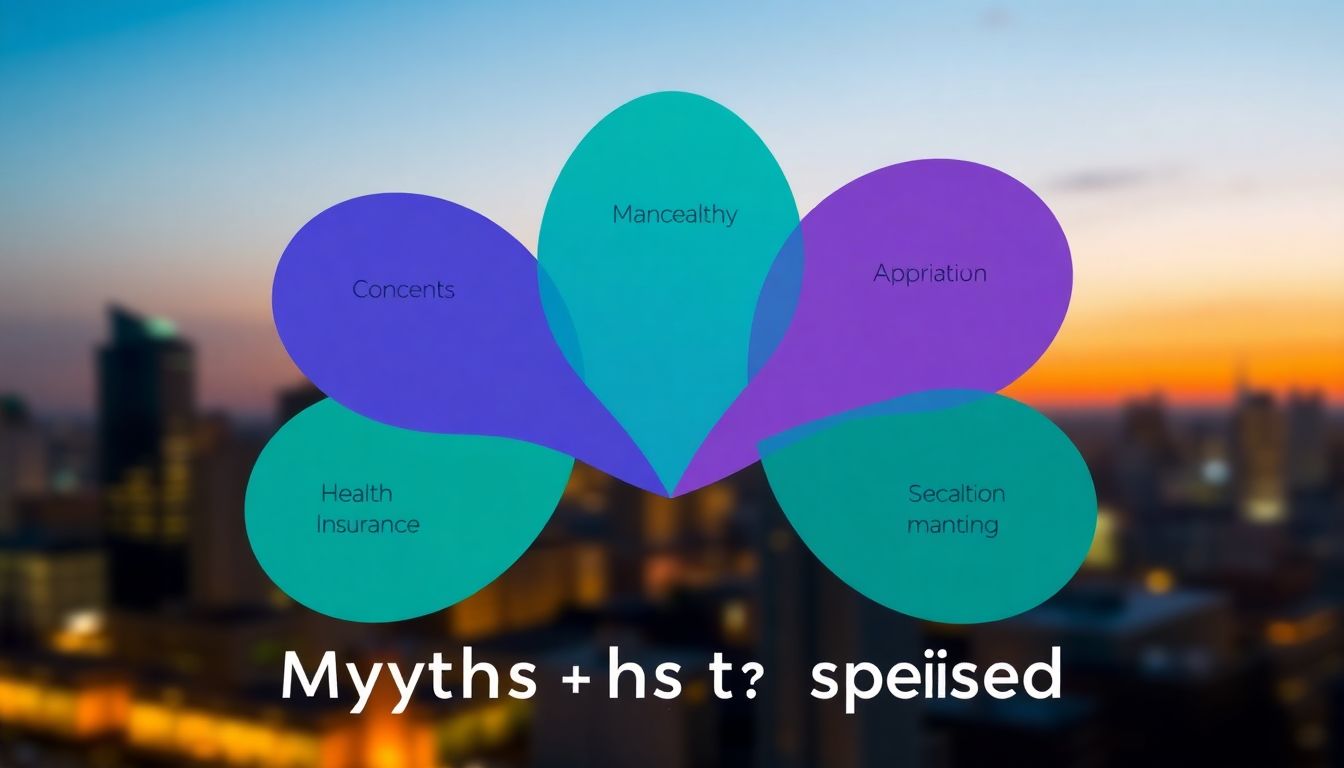
Debunking the Top 5 Health Insurance Myths: What You Need to Know
Did you know that nearly 30% of Americans believe at least one major misconception about health insurance? Understanding the truth behind these misconceptions is crucial for making smart healthcare choices. In this piece, we will demystify five prevalent health insurance myths, providing you with the knowledge you need to empower better decisions.
Myth #1: Health Insurance is Too Expensive for the Average Person
Understanding Affordable Care Act Subsidies
Many think health insurance costs are out of reach, but the Affordable Care Act (ACA) offers subsidies for qualifying individuals. As of recent reports, nearly 88% of enrollees received financial assistance. This significantly reduces monthly premiums, making health insurance more accessible.
Exploring High-Deductible Plans and HSAs
High-deductible health plans (HDHPs) can lower your monthly payments. They come with health savings accounts (HSAs), allowing you to save money tax-free for medical expenses. For example, a family of four may choose a high-deductible plan with an HSA and end up saving thousands in taxes while preparing for healthcare costs.
Finding Affordable Plans
To find affordable options:
- Use online comparison tools.
- Consult licensed insurance agents.
- Check state-run health marketplaces for different plans.
Myth #2: Young and Healthy People Don’t Need Health Insurance
The Unexpected Accident/Illness
Even if you’re young and fit, accidents can happen. A minor injury could result in bills amounting to thousands. Without insurance, these costs can be devastating.
Preventive Care
Preventive care is vital for long-term health. Regular check-ups catch issues early, saving money and stress. Dr. Amy Jones, a family physician, once said, “An ounce of prevention is worth a pound of cure.”
Future Implications
Not having insurance can lead to mounting medical debt. If a serious illness strikes, the financial burden can be crippling. It’s better to stay protected and avoid potential financial pitfalls.
Myth #3: My Employer’s Plan is My Only Option
Marketplace Options
Many individuals don’t realize they can shop for plans outside their job. The Health Insurance Marketplace has a variety of options, often more suited to specific needs.
Individual vs. Family Plans
Individual plans cover one person, while family plans extend to dependents. Depending on your situation, one may be more beneficial.
Comparing Employer and Marketplace Plans
It’s essential to compare coverage options:
- Review premium costs.
- Investigate deductible amounts.
- Check out-of-pocket maximums.
Finding the right fit could offer better coverage and savings.
Myth #4: Reading the Fine Print Isn’t Necessary
Understanding Key Terminology
Many skip over fine print, but knowing key terms is essential:
- Deductible: Amount you pay before insurance kicks in.
- Copay: Fixed fee for a visit or service.
- Coinsurance: Percentage of costs you pay after reaching your deductible.
The Importance of Network Providers
Choosing in-network providers saves money. Out-of-network services can lead to higher charges. Always check provider networks before enrolling.
Hidden Fees and Charges
Unseen costs can creep into your bills. Look out for:
- Surprise billing from out-of-network doctors.
- Administrative fees. To avoid surprises, ask detailed questions before signing up for any plan.
Myth #5: Once I’m Insured, I Don’t Need to Worry About Costs
Maximizing Insurance Benefits
To get the most from your insurance, use in-network providers and familiarize yourself with your coverage specifics. Knowing what’s covered can save money.
The Importance of Tracking Medical Expenses
Keep track of medical bills. Use budgeting apps or spreadsheets to monitor costs. This helps in planning expenses and budgeting for future healthcare needs.
Advocating for Yourself
If you encounter billing issues, don’t hesitate to speak up. Clear errors can save significant amounts. Always question charges you don’t understand.
Conclusion
Understanding the truth behind these five health insurance myths is vital for making informed choices. Knowledge equips you to navigate healthcare options wisely. Research your options thoroughly, and feel free to seek professional advice if you need help. For additional resources, check out HealthCare.gov or consult a financial advisor specializing in health insurance.